Creating the Plan to Eventually Depart Your Business
Creating and Editing Your Plan
I am now 66 years old. It seems like a strange statement to write here. Where did that time go? I have a grown son, and my spouse and I are now empty nesters. It is just us now, but we do get to enjoy some delightful visits from my son when he can get away from his own business to join us. Does that sound familiar to you?
We will all be addressing a similar outcome as we age into our later years. This will also affect our business lives. All business owners will exit their businesses, either by choice or as circumstances dictate (e.g., death, incapacity). Ideally, we want to exit on our terms:
Leaving our businesses in the hands of successors that we have chosen
For the money we need and want
On a date we pick
In the public presentations that I get to do at trade shows and association meetings, I get to see an aging population where half of the attendees either have white hair or no hair (and I’m in that latter half)! We are an aging industry population, and I am guessing that you see the same thing in your own industry meetings. Is there a viable transition plan that we can implement moving forward?
There are 3 Universal Goals in any Successful Business Transition:
Financial: after you leave the business, how much money do you want annually for the rest of your life and your spouse’s life?
Departure Date: when do you want to leave your business? And what does “leave” mean?
Successor: To whom do you want to be the new owner of your company?
Universal Goal 1: Getting what you want.
While we view financial security as a requirement for a successful exit, a second related financial goal is the amount of annual income you want, which will allow you to enjoy the post-exit lifestyle you envision. This second financial goal may be discretionary, but for many owners, it is important enough that they will postpone their exits until they can achieve it. As is true of all decisions in planning for the future of your ownership, the choice is yours.
In previous posts, I have already recommended that you work with a financial planner to determine what your financial goal is. I will continue to argue for the benefits of working with best-in-class advisors from several disciplines. But to quantify what it will take to live your dream, I repeat: rely on an experienced financial planner to establish your financial security wants and your financial security needs. As your planning moves forward, they can also help you bridge any gaps by providing investment advice.
Universal Goal 2: Leaving when you want
Establishing a specific departure date gives you and your advisors a time frame to plan and take the action necessary to prepare your business for your exit. This does not mean you must exit on the first day you choose. Just like amending a construction plan, you may decide to stay in the business longer than anticipated by choice. The choice is yours, but only if your business is ready for you to exit it.
Universal Goal 3: Transferring ownership to whomever you want
The third and last universal goal that I ask owners to establish at the outset of the exit and transition planning process relates to a successor. Whom do you want to succeed you: a child, a partner, or a third party? Which type of successor will best help you reach your goals?
At the outset of this planning process, you may not have a successor preference. You can postpone that decision until after you quantify your asset gap and begin to bridge it.
Modifying Your Goals:
When owners work with advisors to plan their exits, they think more deeply and clearly about what they ultimately want to accomplish for themselves, their families, and their businesses. It is not unusual for owners, as they gain clarity, to modify their goals. Making changes early in the process is more time and cost-efficient than changing course once a plan is finalized and implementation is underway.
Values-Based Goals:
The three universal exit goals are common to all owners. These may be the only goals you seek in exiting your business, but many owners have additional goals based on sentiment, attitudes, or feelings.
Values-based goals tend to be non-monetary. They also tend to be less tangible and more heartfelt. But they are no less important to owners than the goals we can measure objectively.
The following list of common values-based goals is by no means exclusive or all-encompassing. You may wish to add your own:
Family Harmony
Owner Legacy
Acknowledging Employees
Taking the Business to the Next Level
Minimizing Taxes
Maintaining Culture
Community Involvement
Quality Retirement
Charitable Impulses
To uncover your values-based goals, ask yourself the following:
What is my vision for my company without me?
What is my vision for myself without my company?
Are my values-based goals important to either vision?
A great question you may wish to ponder is, “What are the likely consequences to others of transferring my ownership as I intend?” Discussing this topic with your spouse, children, advisors, or perhaps an owner who has already exited can provide insights into what will happen to your business and to you after you leave. As your business has been your focus for so many years, where will you turn that focus after departing your business? What lies ahead?
Conclusion:
Setting goals is the most important step you can take in the entire exit planning process. I believe it is the most important action you will take in the rest of your business-owning career.
Once you set your goals and quantify your existing resources, you complete the first phase of the exit planning process. At that point, you will know how close you are to attaining your goals, how far you must go, and how long it might be before you cross the finish line.
Takeaways:
You must set concrete goals. Unless you do, you will float aimlessly along instead of pulling with all your strength and cunning toward your desired destination
Goals drive action. Coordinated, focused action requires specific goals
Financial independence is the acid test of all successful exit plans. Unless your plan delivers financial security, it’s not a successful exit
Base your three universal goals on facts, not assumptions
Business exits take time. To determine how long it will take you to exit, you must start with a clear understanding of where you want to end up. The sooner you start to plan your exit, the more time and options you have to harmonize goals, avoid obstacles, minimize risk, maintain control, and increase business value
You do not need to reinvent the wheel. You may not know how to create a successful exit plan based on what you want to accomplish, but I do. If you would like to do a free exit assessment to get a better picture of your present position, contact me at david@remodelforce.com. A simple 30-minute assessment will tell you a lot!



